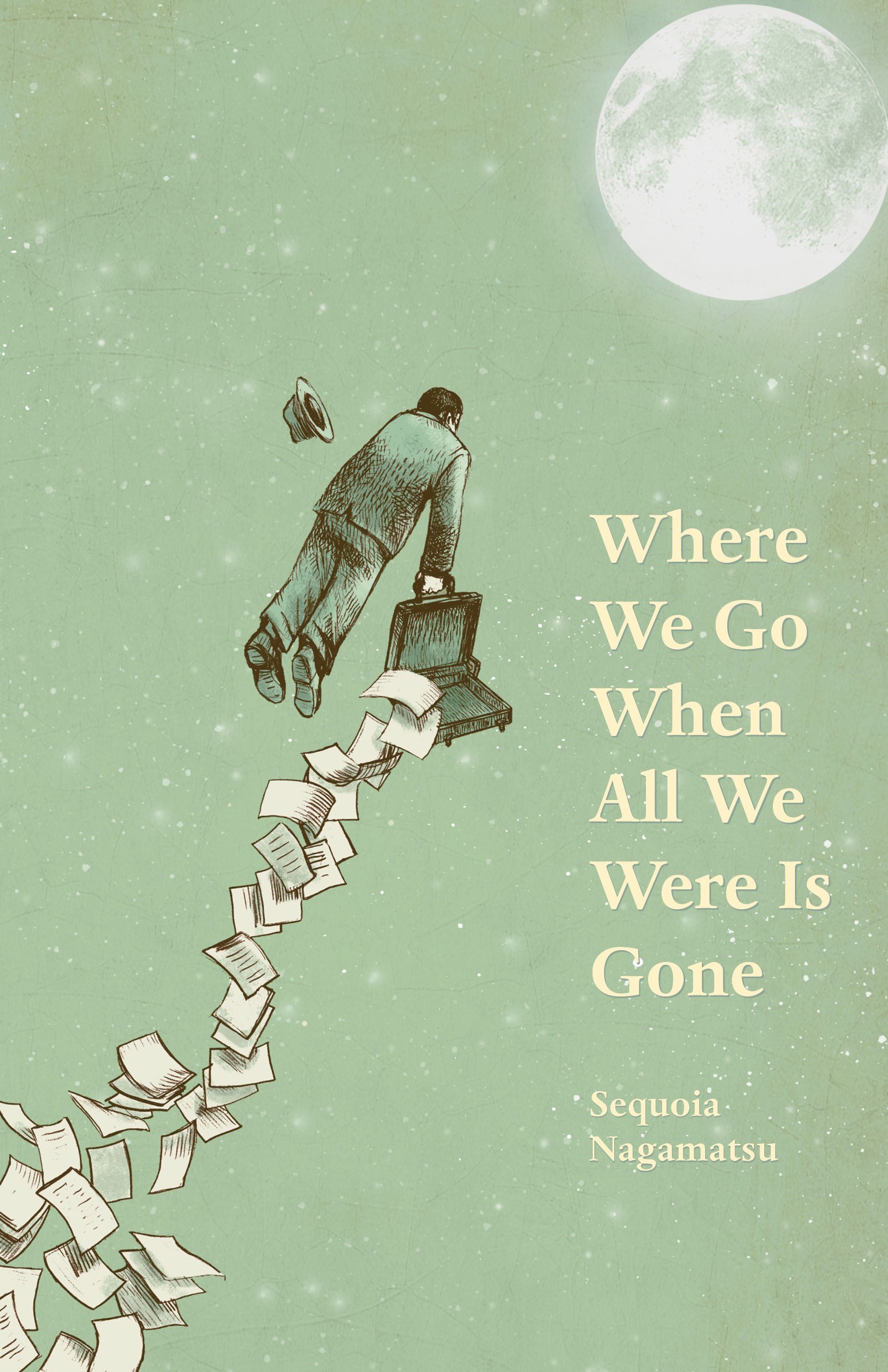Its greatest fault: being too short to develop its
tantalizing ideas/relationships further!
 |
| Nagamatsu, Sequoia. Where We Go When All We Were Is Gone. Black Lawrence Press, 2016. |
Buy it here.
As my dozens of fans worldwide are no doubt aware, I’m generally
not
a fan of short story anthologies. That’s because there are only two types
of short stories: (1) short stories so good the reader laments their shortness,
wishing for a longer treatment, and (2) bad short stories. Ultimately, why read
either one? Needless to say, I went into this assignment (and, you know, all
other assignments) with a snarky, judgmental attitude.
The one glimmer of promise for this volume is that it’s a
self-anthology, i.e. all short stories by the same author whose order,
presumably, was also carefully considered by same, so it’s not as though it’s a
typical third-person ‘throw it all in—the readers will never know the
difference’ anthology hack-job.
The opening story in the volume took some time for me to get
used to, but once I did, it fell neatly into category (1) above. (Not to ruin
the suspense of this page-turner of a review, but I’m happy to report that actually
all the stories were category (1)’s!) My reason for liking this story, about a
family torn apart (in one person’s case literally!) by ‘kaiju’ (mega-monsters
like Godzilla, etc.), was not so much the Japanese pop culture subject matter,
though I’ll be the first to admit I like that stuff, but because of the central
mystery: how, in just a few pages, did Nagamatsu manage to make me care about
the characters involved? It’s written in a whimsical, nonlinear manner, from
multiple perspectives, and although one of the central characters in this
family drama had, it turns out, died years earlier, somehow I felt myself
choked up imagining the trauma of this loss on the surviving family members. If
you’d told me beforehand that I’d be crying at the end of a few-thousand-word story, I’d
have chortled (a word that doesn’t get used nearly enough) right in your face,
but sure enough, that’s what happened.
And it kept happening, for almost the entire collection! I
began to perceive certain patterns to the stories, or perhaps to Nagamatsu’s
own preoccupations: nearly all the stories (except, e.g., the one about the neck-extending
yōkai and the one about the Kappa) feature a three-person family from which one
person has been (usually violently) ripped away, and the stories, their
supernatural content notwithstanding, are really all about bereaved family
members making sense of their trauma. So even if you’re not really into the
notion of, say, ghost visitations by a dead son inspiring his father to make a
special fireworks display, I think you’ll find the way the father and the
mother separately deal with their loss quite touching.
But that doesn’t absolve Nagamatsu of responsibility for
writing category (1) short stories: almost any of these stories, in my
novel-tinged opinion, would be better as novellas or novels, because that would
afford Nagamatsu greater space to develop these triangular relationships more
fully. So we’re back where we started, in the frustrating limbo of short
story-land…let’s hope Nagamatsu will escape next time into the fully-fledged playground
of the novel, because I can say with certainty that his ideas are great, and deserve longer treatment!
The Math
Objective assessment: 7/10
Bonuses:
+1 for introducing a (hopefully!) wide audience to
many of the coolest Japanese folk tales and supernatural legends, i.e. Kappa, rokurokubi,
and more;
+1 for
somehow making me care, in only a few short pages, about characters literally
just brought to life on the page a few moments before!
+1 for the dendrophilic name!
Penalties: -1 for letting all these good ideas wither on the
stupid vine of short storydom
-1 for the impossible-to-abbreviate title (a.k.a., WWGWAWWIG)
Nerd coefficient: 8/10 “It’s a bit of all right” in Australian, “kinda awesome” in American, and probably something silly like “capital” or “gobsmackingly good” in ‘English’
[For those unfamiliar with our draconian scoring method, see
here.]
This little fireside chat (with the caveat that I’m not
currently anywhere near a fire, and am not, in fact, chatting with anyone
either) was brought to you by Zhaoyun, purveyor of exquisite long-form fantasy
& science fiction and yes, even (ugh) short stories since forever, and
reviewer at NOAF since 2013.
Extra-special bonus: +1 to Zhaoyun for using ‘chortled’